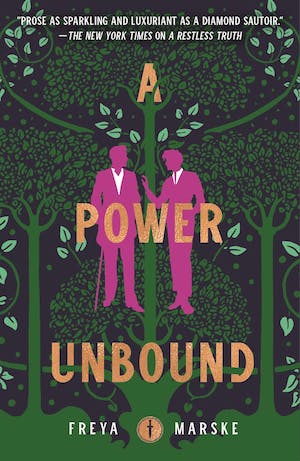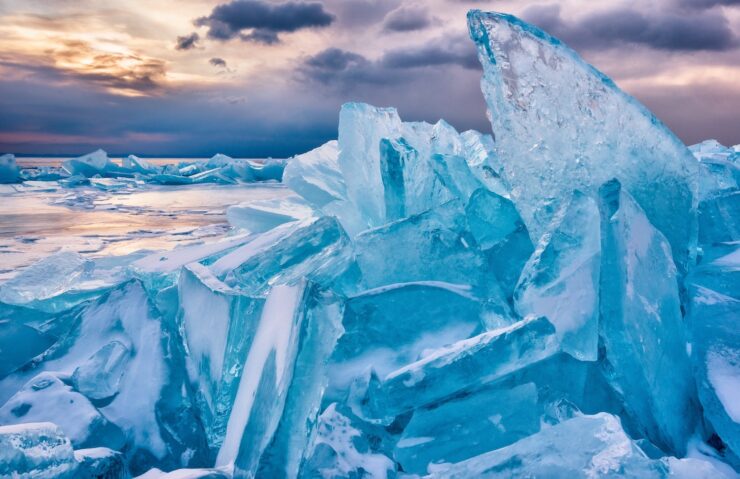Reader, allow me to occupy the space of this post in order to rant about a certain pattern I’ve noticed in fantasy books. First, though, I suggest you don your puffiest winter coat, because we’re venturing into my most dreaded fantasy setting: the icy tundra.
Before we snap on our snowshoes and venture grimly into arctic wastelands, let’s establish a few important disclaimers. First, I am aware that this is an entirely subjective, personal problem for me as a reader. Second (and relatedly), I live in Chicago, a city caked in snow and bitter, face-stinging temperatures for a good chunk of every year.
Anyone who reads a lot of fantasy is bound to hone their personal palate over the years, developing their taste for favorite ideas or tropes as well as recognizing the things that turn them off or take them out of the story. Ten years ago, for example, Carl Engle-Laird took to Tor.com to declare his disdain for boats. Today, I take up the mantle and hereby air my grievances about icy tundras.
Let’s set the stage: I pick up a fantasy book and it hooks me—you know the feeling. Characters start to develop. The setting—sometimes a medieval city, sometimes a den of thieves, or any number of other vibrantly imagined locales—provides a glorious backdrop in which the story unfolds. But then, oh no! A character is trapped in a faraway jail! A long-lost mythical item that could change the course of history has been rediscovered! There’s an existential threat lurking on the northern border! The characters, brimming with agency, band together and venture off to parts unknown to find, rescue, or defend.
I have no problem with any of these plot points or story structures in theory, of course—however, I heave a sigh of frustration when I discover that the narrative is now hurtling us toward a polar desert. Snow loses its appeal pretty quickly for anyone who has to shovel and/or commute in wintry weather for 4+ months of the year. Visually, snow can be pretty boring, too—awash with blinding white and nary a detail to stand out on a blank, frozen canvas. I’d argue the sense of isolation and lifelessness we associate with freezing weather and snow-covered wastelands feels like a better fit for horror (as in The Shining, The Thing, or The Terror) than for fantasy and adventure. Plus, real talk: who likes being cold?!
Leigh Bardugo’s Six of Crows shaped my conception of the Icy Tundra Problem into its current form. I read the book on the recommendation of many a reader. Early on, I was captivated by the city of Ketterdam. A port city of gambling pits, pleasure dens, and sly thieves—sold! I’ve got the pen right here—where’s the dotted line?
Then, Kaz and his band of outcasts accept a deadly job. They’re hired to rescue the inventor of a powerful drug from… the Ice Court. Damn… I’m suddenly regretting joining up so fast. Soon, Kaz and his crew are miles from the busy streets of Ketterdam, trekking through the arctic land of Fjerda on their way to a prison complex made of ice. The Ice Court may be fine and dandy for some, but for me, it pales in comparison to the bustling, Amsterdam-esque Ketterdam.
Now, I wish to acknowledge my own bias here—I wasn’t a fan of Six of Crows in general, and the book’s Icy Tundra Problem only solidified those feelings. So let’s now shift to the work of one of my favorite authors—one I know many Tor.com readers will be familiar with.
Brandon Sanderson kicks off the second era of his Mistborn series with two delightful volumes. The Alloy of Law gives readers a quick-hitting update 300 years after the events of The Hero of Ages books. Guns! Trains! Rootin’ tootin’ robberies! Shadows of Self unravels the city of Elendel’s intricate and tenuous political landscape: Intrigue! Shapeshifters! Assassination attempts!
Then the third book, The Bands of Mourning, takes us on a journey to recover the titular items…and what do we get? Ice! Snow! More ice! I’m being facetiously reductive here, but there’s a grain of truth to my exaggeration: The back half of The Bands of Mourning sets many of its high-impact reveals against a drab landscape of snow and ice in the far north. This particular icy tundra was created after the events of the first trilogy, so there’s a lore-based reason for it to exist, and for characters to visit it. However, I find it hard to overlook the move to such a bland setting for Sanderson, who has built some of the most fascinating and compelling settings in contemporary fantasy.
Let’s turn, now, to an interesting twist on the Icy Tundra Problem: Philip Pullman’s The Golden Compass (aka Northern Lights) offers some truly excellent fantasy settings. I can hear you loud and clear already: “But, but, a major section of The Golden Compass takes place in an icy tundra!” Indeed it does.
I commend Philip Pullman for crafting a genuinely captivating icy world in The Golden Compass. Lyra Belacqua befriends a polar bear and uncovers the existence of villainous lairs where the antagonist is doing truly horrible things to children and their daemons. There’s a vicious battle for the polar bear throne! Pullman’s subarctic setting isn’t a problem for me at all. What comes after it is.
Pullman spends quite a bit of this first book introducing readers to the wonders of his wintery world. He convinced me, a reader with a staunch anti-tundra bias, that this setting could provide a compelling backdrop for a story. Then I picked up The Subtle Knife, in which Pullman thrusts Lyra into other worlds with her new companion, Will Parry.
And where do these two end up? Our world. The icy land of witches and talking polar bears and sharpshooting balloon pilots is reduced to a backward glance in our rear-view mirror. In its place sits mundane reality, and it’s against this more familiar backdrop that Will and Lyra begin to discover more about Dust and its worlds-spanning implications. The Subtle Knife isn’t bad by any means, but it commits the exact opposite of the Icy Tundra Problem, abandoning a brilliant (albeit icy) world for a much duller, less fantastical one.
Buy the Book


A Power Unbound
By now you may have realized—as I have—that my problem might not be with icy tundras and frozen expanses at all. My distaste for barren icy landscapes are a mere symptom of a larger issue. Sure, I still balk when stories involve arctic settings, especially when that means prying characters away from a much more interesting setting. But I think my bigger issue is what feels like the reckless or arbitrary abandonment of a compelling and comprehensive setting in place of a new one.
I understand the need for writers to challenge characters and put them in uncomfortable places or positions, and to keep the story moving with expanded worldbuilding. I also understand that there are ways to do those things without making it feel like they’re tossing aside a wonderfully realized, exciting locale in favor of a change of scenery (especially when that scenery tends to be stark, foreboding, and maybe a bit of a slog…)
Perhaps the Icy Tundra Problem has a simple solution, and it’s just a question of opening my mind and my heart to new places in fiction, even when the transition feels a bit jarring. Maybe leaning into that discomfort or dissonance is all part of the journey, and I need to just go with it. I barely leave my house in the coldest months, so I’ve got to find my adventurous fix somewhere… Maybe that fix lies buried deep beneath layers of snow and ice. Time to bundle up.
I’d love to hear from other readers: are there certain types of settings that you consider a turn-off? Can you think of other examples of times a sudden change of direction or location took you out of an otherwise compelling narrative? I’d like to hear your thoughts on the subject—and if it turns out that you happen to love an icy, snowbound story, feel free to make recommendations below!
Cole Rush writes words. A lot of them. For the most part, you can find those words at The Quill To Live. He voraciously reads epic fantasy and science-fiction, seeking out stories of gargantuan proportions and devouring them with a bookwormish fervor. His favorite books are The Divine Cities Series by Robert Jackson Bennett, The Long Way To A Small, Angry Planet by Becky Chambers, and The House in the Cerulean Sea by TJ Klune.










